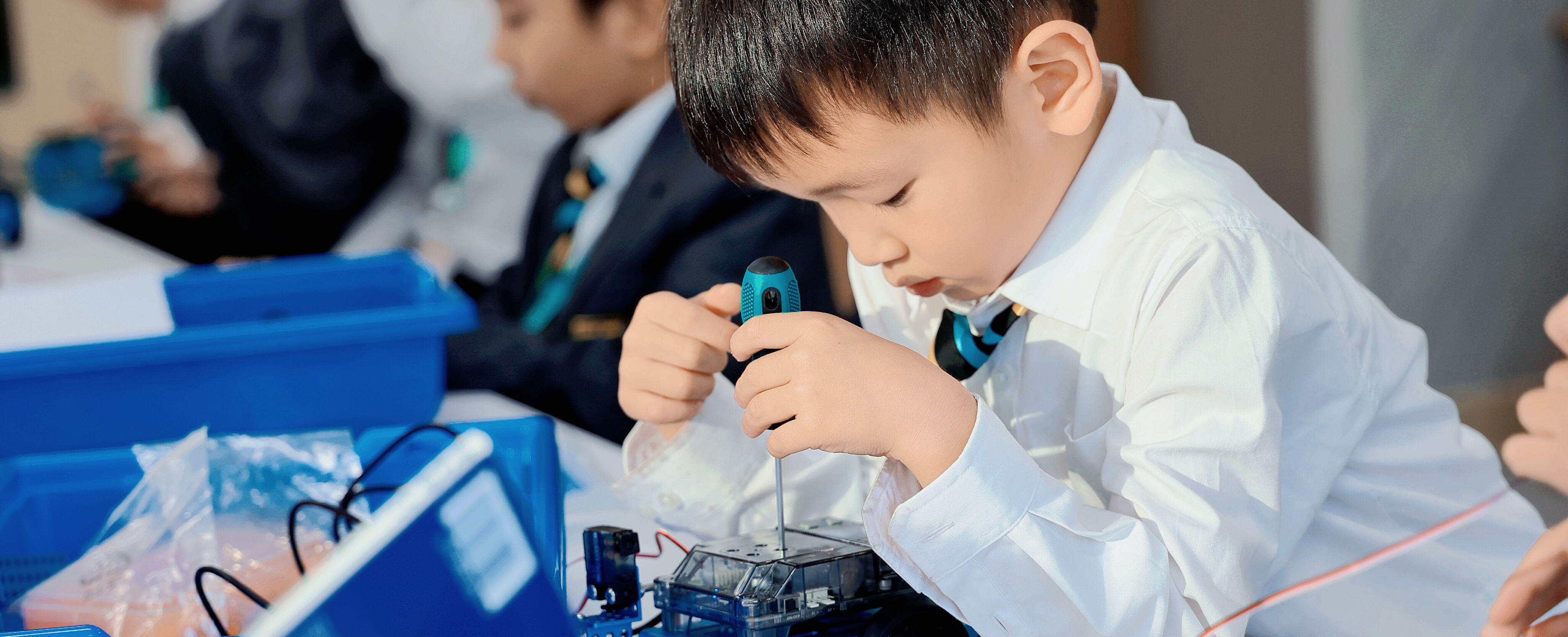

A holistic education places the pupil at the heart of everything we do, where the focus is on that child’s individual needs. Each child is presented with various learning opportunities that challenge and engage them as much as possible. Planning for learning takes into consideration what the child knows already and builds on that knowledge, rather than simply imposing new concepts without acknowledging the child’s starting point or allowing for critical thinking. While gaining knowledge is vital, developing a solid sense of self-worth, self-esteem and confidence are equally important elements of a holistic education.
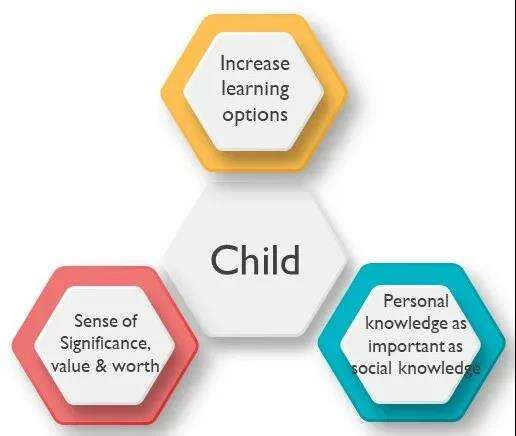
The diagram above illustrates the thinking and research of Canadian professor Dr JP Miller, on the major elements of a holistic curriculum.

But what does the Hiba School model look like?
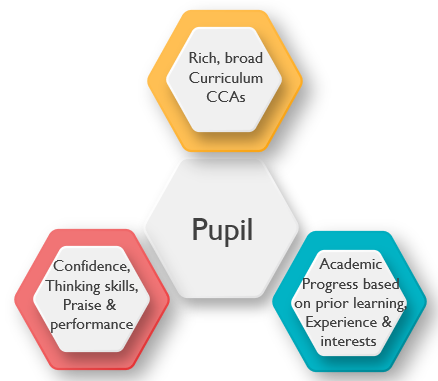
Pupil-centred
As you can see, our pupils are at the very heart of all we do, with the Hiba curriculum being rich and broad. We emphasise each pupil’s experiences, learning habits, hobbies, personality traits and other development factors. According to their individual characteristics, we will guide our pupils to learn actively through differentiated teaching. We will ensure that each pupil not only develops their competences in a balanced manner, but also understands their unique advantages.
Academic Progress
Our curriculum development team has outlined a unique curriculum for Hiba School Nantong, proposing short-term and mid-term plans with specific goals accordingly. We have also developed an appropriate assessment system. Teachers with years of experience are involved in the curriculum development process, which helps ensure its validity and overall purposefulness.
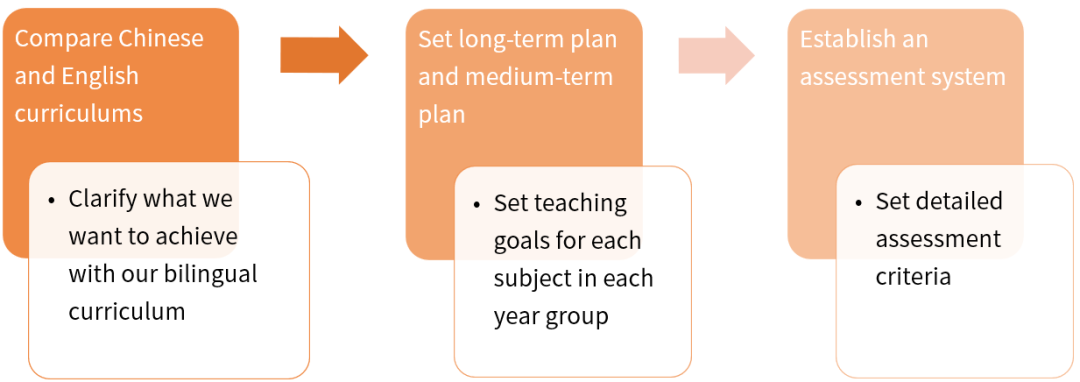
Curriculum planning does not simply follow a text or educational programme set down by others. Each teacher looks at the pupils’ current knowledge and understanding and then plans learning strategies from that starting point. The more able pupils in each class will be pushed and supported just as much as those who need dedicated support to progress.

Oscar, a pupil from our sister school in Shanghai, won an academic scholarship in 2020. The academic scholarship programme recognises outstanding academic achievement and all-round excellence. Applicants should also have leadership potential, an exemplary behavioural record, unfailing kindness to their peers, and an ability to act as a mentor and role model. In 2020, four pupils in total achieved an academic scholarship.
His teacher found that Oscar has a keen interest in maths and a talent for pattern recognition and enjoys solving problems. So, the teacher designed a personalized learning plan for him. The teacher devised mathematical activities to encourage Oscar to explore mathematical phenomena and find applications for mathematics in real life. He supported Oscar in building cognitive and metacognitive skills. Cognitive ability refers to how pupils understand mathematics; in other words, the ability to learn the subject. Metacognitive ability refers to how well pupils understand their own cognition. It is the practice of learning how to learn. According to the evaluation results taken at each stage, the depth and breadth of Oscar's mathematics learning will be further enhanced.
In the American Mathematics Competition, Oscar ranked in the top 5%.
Rich, Broad Curriculum / CCAs
Our co-curricular activity (CCA) programme will ensure our pupils experience new learning opportunities and develop them further. Pupils will be offered CCAs in the three major strands of our curriculum: the arts, sports and academics. Over time, pupils will enjoy learning new skills in diverse and challenging areas. These extended learning opportunities will allow development of the whole child. Skills learned in one area will support learning in all others. This is particularly true in promoting confidence, emotional resilience and self-worth. Experience shows us that the child that is engaged with sports teams, music, drama and the visual arts is more likley to embrace everything that Hiba has to offer and to succeed academically too.
Hiba School Nantong’s CCA programme will also feature a debating class. Debate is more than just argument and eloquence. It teaches logic, reason and critical thinking.
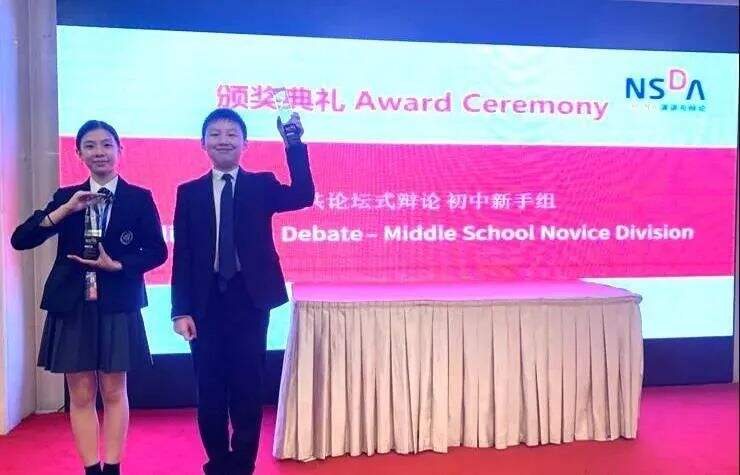
Robert, a pupil from our sister school in Shanghai, is the Champion of NSDA’s National Speech and Debate Tournament for the Middle School Novice Division. He says: “debating allows us to learn a lot about topical issues concerning the world right now. It incentivises and awards critical thinking by allowing us to think outside the box and by looking at an issue from different perspectives. Critical thinking also allows us to challenge ourselves for new adventures and dilemmas that we may encounter in the future. Debating helps us develop our ability to project with fluency, conviction and confidence. It also allows us to see the world by exposing ourselves to other worthy debaters. Lastly, winning a debate is an absolutely fantastic experience.”
Confidence, Thinking Skills, Praise and Performance
We will provide rich and broard opportunities and platforms for our pupils to build their confidence and cognition. Through theme-based learning, we will explore the connections between academic subjects and real life. Through project-based learning, we will encourage pupils to explore independently and stand on the stage confidently to express themselves. Through our performing arts programme, we will provide pupils with a platform to discover themselves, collaborate and create. Through our leadership programme, we will help pupils step outside their comfort zone and learn how to make an impact on the world around them.

Yinuo, a pupil from our sister school in Shanghai, successfully applied for the position of Li house sports captain. During his application process, his teacher guided him to realize the importance of the Hiba Value of Responsibility to the leaders around him, tutoring him to learn to oversee and direct the group’s work, helping him improve his skills in organising, planning and delegating tasks and teaching him to accept and appreciate the perspectives of the team members while learning to listen and empathise with others.
Holistic Education
At Hiba School Nantong, Holistic Education will be a daily reality. Simply put, it will be embedded into everything we do.
Contact Us
Contacts:Sammi Gu
Hotline:0513-8919 0666
Telephone:177 1485 5368
Email:admissions.hsn@huilieducation.cn
Website:nantong.hibaacademy.org.cn
Founding Office Address:
China-Austria Eco-Park, Su-Xi-Tong Science and Technology Industrial Park, Nantong
School Address:
66 Haide Road, Su-Xi-Tong Science and Technology Industrial Park, Nantong, Jiangsu

